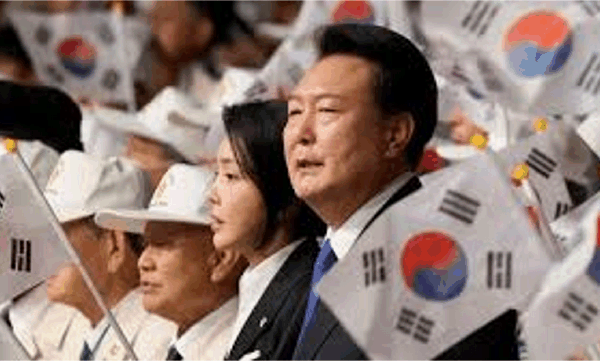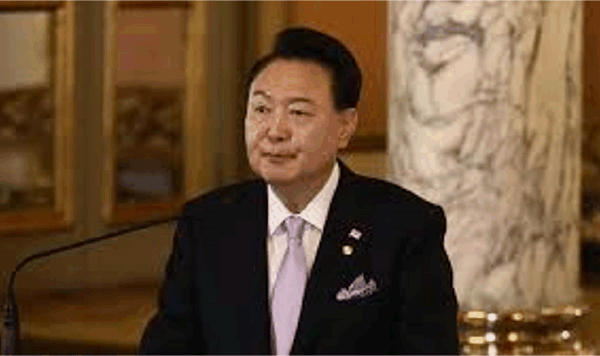중국에서 오염된 식용유 스캔들이 분노를 촉발하고 안전에 대한 두려움을 높였습니다.
개빈 버틀러(Gavin Butler)와 카이 펑(Kai Feng)
14시간 전 게시됨14시간 전
노란색 식용유가 담긴 큰 병이 공장에 채워져 있습니다.
조사관에 따르면 중국에서 식용유, 콩기름, 시럽을 운반하는 데 사용되는 트럭이 액체 화학 물질을 운반한 후 청소되지 않은 것으로 나타났습니다.(Jason Lee/Reuters)
간단히 말해서: 농무부는 식용유를 휘발유 및 기타 화학 물질과 교차 오염시킨 것으로 의심되는 회사가 호주로 수출하고 있음을 확인했습니다.
이 회사의 유조선은 비용 절감 조치의 이중 임무를 수행했으며, 배송 사이에 트럭을 청소하지 않은 것으로 알려져 있습니다.
다음 단계: 전문가들이 공중 보건과 경제에 대한 잠재적 영향이 불분명하다고 경고함에 따라 중국 정부는 이러한 주장을 인정하고 조사를 진행하고 있습니다.
호주는 중국의 식품 안전 스캔들에 연루된 회사 중 한 곳으로부터 식용유를 수입해 왔다고 농무부가 확인했습니다.
중국 당국은 주요 국영 식품회사가 비용 절감을 위해 연료, 화학액체, 식품을 운송하는 데 동일한 트럭을 사용한 사실이 현지 언론 보도에 따라 조사 중이라고 밝혔습니다.
7월 2일 이러한 주장을 보도한 국영 베이징 뉴스의 조사에 따르면 트럭이 배송 사이에 청소되지 않았다는 것은 운송 업계의 “공공 비밀”이었습니다.
이 보고서에는 중국 최대 곡물 저장 및 운송 회사인 Sinograin과 민간 대기업인 Hopefull Grain and Oil Group이 연루되어 있습니다. 이후 두 사람 모두 이 문제에 대한 조사를 발표했습니다.
한 남자가 사일로를 지나 순환합니다.
중국의 국영 곡물 비축업체인 Sinograin은 식용유를 위험한 화학물질로 오염시킨 혐의를 받는 회사 중 하나입니다. (로이터)
농림수산부 대변인은 호주가 언론 보도에 언급된 회사 중 한 곳을 포함해 ‘식용유’로 간주될 수 있는 다양한 기름을 중국으로부터 수입했다고 말했습니다.
그들은 “‘식용유’가 무엇인지 명확하지 않기 때문에 수량 데이터를 이용할 수 없다”고 말했다.
“우리의 정상적인 절차에 따라 부서는 호주로 수출되는 식용유가 소비하기에 안전하다는 중국의 보증을 구할 것입니다.
“수입업자들은 공급업체로부터 보증을 구하도록 권고받을 것입니다. 현재 중국산 식용유에 대한 수입 금지 조치는 없습니다.”
ABC는 호주가 수입하고 있는 두 회사 중 어느 회사에서 제품을 수입하는지에 대해 명확한 설명을 구했습니다.
한편 대중의 분노와 식품 안전에 대한 우려는 중국 사회와 소셜 미디어를 통해 확산되고 있습니다.
그렇다면 잠재적인 건강 및 식품 안전 영향은 무엇입니까? 호주가 위험에 처해 있나요? 그리고 이러한 주장이 중국 소비자 행동에 어떤 영향을 미칠 수 있을까요?
건강상의 위험은 무엇입니까?
유조선으로 운송된 식품에는 식용유, 콩기름, 시럽 등이 포함되었습니다.
조사에 따르면 동일한 유조선은 불포화 탄화수소, 방향족 탄화수소, 황화물 및 중독을 일으킬 수 있는 기타 요소를 포함하는 석탄-석유 제품을 운송하는 데에도 사용되었습니다.
다문화 소비자 행동을 전문적으로 연구하고 있는 시드니 경영대학원의 수석 강사인 Ulku Yuksel 박사는 기업들이 비용 절감을 위해 소비자 건강을 무시하고 있다고 비난했습니다.
마스크를 쓴 여성이 쇼핑 통로에서 식용유가 담긴 큰 병을 바라보고 있습니다.
운송 중 식용유가 오염되었다는 주장이 중국인들의 건강과 안전을 두려워하며 분노를 불러일으켰습니다.(AFP)
그녀가 말했듯이: “식품 안전은 인간의 기본 권리입니다.”
Yuksel 박사는 ABC와의 인터뷰에서 “이는 단기 또는 장기 중독과 같은 중독을 유발할 수 있을 뿐만 아니라 사람들의 중요한 장기에 치명적인 영향을 미칠 수 있습니다”라고 말했습니다.
“연료, 화학 액체 및 식용유에 동일한 유조선을 사용하기로 한 그러한 파괴적인 결정의 영향은 치명적입니다.”
Yuksel 박사는 식용유 스캔들의 심각성은 오염된 분유 제품으로 인해 6명의 유아가 사망하고 약 54,000명이 입원한 것으로 밝혀진 2008년 중국 우유 스캔들과 동일하다고 말했습니다.
분유 중국
식용유 파문은 2008년 분유 파문과 비슷하다는 평가도 나온다.(로이터)
이 사건은 중국의 식품 수출에 대한 평판을 심각하게 손상시켰고, 많은 중국 소비자들이 호주를 포함한 해외에서 현지 브랜드와 유아용 분유와 같은 소스 제품을 불매운동하도록 촉발했습니다.
Yuksel 박사는 오염된 식용유가 잠재적으로 더 많은 사람들에게 영향을 미칠 수 있다고 말했습니다.
“이것이 더 나쁘다고는 할 수 없지만 그만큼 나쁘다고 말하고 싶습니다.”
분유 쇼핑객
ABC 조사에 따르면 애들레이드의 중국 개인 쇼핑객 네트워크는 유아용 분유 구매 제한을 무시하고 해외 판매를 하고 있는 것으로 나타났습니다. 하지만 그들이 하는 일은 불법이 아니다.
분유를 마시는 중국 아기
더 읽어보세요
Andrew Matheson 박사는 Australian N의 선임 강사입니다
식품 안전 문제에 관해 세계보건기구 및 UN과 협력해 온 미국 국립대학교 보건의과대학 출신입니다.
그는 ABC와의 인터뷰에서 특정 불순물은 독특한 맛으로 인해 쉽게 감지될 수 있지만 소비자가 이를 깨닫지 못한 채 잠재적으로 유해한 다른 화학물질에 노출될 수 있다는 걱정스러운 가능성이 있다고 말했습니다.
Matheson 박사는 “맛이나 오염이 있으면 사람들이 사용을 중단하기를 바랍니다”라고 말했습니다.
“그러나 맛이 없는 다른 화학물질도 운반될 수 있습니다.”
Matheson 박사는 식용유를 운송할 때 유조선에 특정 화학 물질이 소량만 남아 있더라도 여전히 영향을 미칠 수 있다고 말했습니다. “[용기가] 음식을 옮기는 경우 이론상으로는 음식만 움직여야 합니다.”
“그것이 우려된다”고 그는 말했다.
ABC는 논평을 위해 Sinograin에 접근했지만 응답을 받지 못했습니다.
호주가 위험에 처해 있나요?
중국 정부는 이러한 주장에 신속하게 대응해 잠재적 위험을 인정하고 국무원 내에 조사팀을 구성했다.
하지만 이미 피해가 발생했을 수도 있습니다.
Yuksel 박사는 이번 스캔들이 중국에서 광범위한 결과를 초래할 수 있다고 말하면서, 국제 소비자들이 해당 제품을 신뢰하지 않을 것이기 때문에 “해당 제품을 수출하려는 다른 모든 중국 브랜드에 영향을 미칠 것”이라고 예측했습니다.
한 고객이 슈퍼마켓에서 식용유 한 병을 살펴보고 있습니다.
식용유 스캔들이 자사 제품을 수출하는 다른 중국 브랜드에 더 광범위한 영향을 미칠 수 있다는 우려가 있습니다.(AFP)
“그들(중국)은 이것이 경제 전체에 영향을 미칠 것이라는 것을 알고 있습니다”라고 그녀는 말했습니다.
위험은 중국 국경 너머까지 확장될 수도 있습니다.
오염된 것으로 의심되는 식용유 제품이 국내용인지 해외 수출용인지는 아직 불분명합니다.
후자의 경우, 전 세계 국가들도 위험에 직면할 수 있습니다. 특히 수입 제품에 잠재적으로 유해한 오염 물질을 테스트하는 자체 시스템이 없는 경우 더욱 그렇습니다.
Matheson 박사는 “호주에서는 취약합니다.”라고 말했습니다.
“그들이 기름으로 이런 이상한 일을 했고 그것이 호주에 식용유로 들어온다면 우리는 그것을 반드시 테스트할 필요가 없으므로 우리는 이러한 위험에 노출될 수 있습니다.”
채텀 하우스 자원 무역 데이터베이스(Chatham House Resource Trade Database)의 데이터에 따르면 호주는 2022년 중국에서 원유와 정제 모두 총 564,000달러 상당의 대두유를 수입했습니다.
Matheson 박사는 오염된 제품을 추적하고 유사한 사고가 다시 발생하지 않도록 하는 데 상당한 자원을 투자해야 할 필요성을 인식한 중국 정부를 칭찬했습니다.
“이제 문제는 ‘얼마나 오랫동안 진행되었으며, 이미 호주 시장에 수출될 수 있는 제품의 양은 얼마나 됩니까?’입니다.”라고 그는 말했습니다.
슈퍼마켓의 식용유 병으로 가득 찬 선반.
오염된 식용유가 다른 나라로 배송됐는지는 불분명하다.(AFP)
Matheson 박사는 호주 정부가 호주로 수입되는 상품의 안전을 보장하기 위해 상품을 직접 테스트하는 대신 해외 수출업체에 의존하고 있다고 설명했습니다.
“그건 말도 안되는 일이다”라고 그는 말했다.
“그것이 취약점입니다. 실제로 자체 국가 테스트 시스템이 없는데 중국에서 일하는 회사가 지름길을 택한다면 세상이 노출될 것입니다.”
중국 커뮤니티 반응은 어떤가요?
이 논란은 웨이보(Weibo), 중국의 틱톡(TikTok)에 해당하는 두인(Douyin) 등 소셜미디어 플랫폼에서 빠르게 화제가 됐다.
정부의 책임 부족에 대한 분노와 실망을 표현한 수천 개의 게시물이 수백만 건의 조회수를 기록했습니다.
하지만 지금은 검색해도 관련 게시물이 소수에 불과해 중국 정부가 해당 주제를 검열하는 것으로 보인다.
내몽골 출신의 상점 주인인 카오레이(34) 씨는 두인 소식을 처음 들었다.
“이익을 얻기 위해 허점을 이용하는 사람들이 항상 있습니다”라고 그는 말했습니다.
“나는 그 회사들에 대해 너무 화가 나고 우리의 건강이 걱정됩니다.
“식품 안전은 서민들에게 매우 중요한 문제인 만큼 정부가 (이번 사건을) 진지하게 처리해 주기를 바랍니다.”
다른 많은 사람들은 불만을 표현하기 위해 소셜 미디어를 이용했습니다.
중국 소셜 미디어 플랫폼인 웨이보(Weibo)의 한 사용자는 오염된 식용유에 대한 두려움을 후쿠시마 원전에서 처리된 폐수를 태평양으로 방류하려는 일본의 논란의 여지가 있는 결정에 대한 두려움과 비교했습니다.
원자력규제당국, 후쿠시마 방류 승인
국제원자력기구(International Atomic Energy Agency)의 2년 검토 결과에 따르면 일본의 방출 계획은 환경에 미미한 영향을 미칠 것이라고 합니다.
한 관계자가 일본에서 수입한 생선의 방사능 검사를 하면서 방사능 수치를 측정하고 있다.
더 읽어보세요
Weibo 사용자는 중국에서 오염된 식용유가 집에 훨씬 더 가까운 사람들에게 영향을 미치기 때문에 더욱 문제가 된다고 썼습니다.
“사람들은 핵폐수로 인한 피해에 대해 불평해 왔습니다.
일본”이라고 적었다.
“그런데 식용유와 화학물질을 섞은 유독성 유조선을 보고 핵오염은 더 멀고 해산물을 먹지 않으면 피할 수 있지만 유독성 식용유는 서민들에게 더 큰 피해를 준다는 것을 깨달았습니다.
“부자들은 수입 석유를 사용할 수 있지만, 일반 사람들은 국산 석유만 구입할 수 있습니다.”
14시간 전 게시됨
A contaminated cooking oil scandal in China has provoked outrage and raised fears over safety
By Gavin Butler and Kai Feng
Posted 14h ago14 hours ago
abc.net.au/news/cooking-oil-contaminated-china-scandal/104089686Copy link
Link copiedShare article
In short:
The Department of Agriculture has confirmed a company alleged to have cross-contaminated cooking oil with petrol and other chemicals has been exporting to Australia.
It’s understood the company’s tankers were doing double duty as a cost-cutting measure, and that the trucks weren’t cleaned between deliveries.
What’s next:
The Chinese government has acknowledged the allegations and is investigating, as experts warn the potential impacts to public health and the economy remain unclear.
Australia has been importing cooking oils from one of the companies implicated in a food safety scandal in China, the Department of Agriculture has confirmed.
Chinese authorities say they are investigating after local media reports found a major state-owned food company used the same trucks to ship fuel, chemical liquids and food products to cut costs.
An investigation by state-backed Beijing News, which published the allegations on July 2, said it was an “open secret” in the transport industry that the trucks weren’t cleaned between deliveries.
China’s largest grain storage and transport company, Sinograin, and private conglomerate Hopefull Grain and Oil Group were implicated in the report. Both have since announced investigations into the matter.
A Department of Agriculture, Fisheries and Forestry spokesperson said Australia imported a range of oils from China that could be considered “cooking oils”, including from one of the companies named in the media reports.
“As it is unclear what ‘cooking oils’ are implicated, volume data isn’t available,” they said.
“As per our normal procedures, the department will seek assurances from China that cooking oils exported to Australia are safe for consumption.
“Importers will also be advised to seek assurances from suppliers. There are no import bans currently in place for cooking oil from China.”
The ABC has sought clarification on which of the two companies Australia is importing from.
Meanwhile, public outrage and food safety concerns are spreading among Chinese communities and across social media.
So what are the potential health and food safety implications? Is Australia at risk? And how might these allegations impact consumer behaviour in China?
What are the health risks?
The food products transported in the tankers included cooking oil, soybean oil and syrup.
According to the investigation, those same tankers were also used to ship coal-to-oil products, which contain unsaturated hydrocarbons, aromatic hydrocarbons, sulphides and other elements that could cause poisoning.
Dr Ulku Yuksel, a senior lecturer at the University of Sydney Business School whose research specialises in cross-cultural consumer behaviour, condemned the companies for neglecting consumer health in favour of cost-cutting.
As she puts it: “Food safety is a basic human right.”
“This can cause not only poisoning – like short-term or long-term poisoning – this poisoning can have fatal effects on people’s vital organs,” Dr Yuksel told the ABC.
“It’s fatal, the repercussions of such a devastating decision to use the same tankers for the fuel, chemical liquids and cooking oil.”
Dr Yuksel said the seriousness of the cooking oil scandal was equivalent to the 2008 Chinese milk scandal, when contaminated milk powder products were found to have caused the deaths of six infants and the hospitalisation of some 54,000 others.
That incident significantly damaged the reputation of China’s food exports, and prompted legions of Chinese consumers to boycott local brands and source products like baby formula from overseas including Australia.
Dr Yuksel said the contaminated cooking oil could potentially affect even more people.
“I wouldn’t say this is worse, but I would say it’s as bad.”
Baby formula shoppers
Dr Andrew Matheson is a senior lecturer at the Australian National University’s College of Health and Medicine who has worked with the World Health Organization and the United Nations on matters of food safety.
He told the ABC that while certain adulterants may be easily detected due to their distinctive taste, there was the worrying possibility that consumers could be exposed to other potentially harmful chemicals without realising it.
“Hopefully if there’s a taste or a taint, people would then stop using it,” Dr Matheson said.
“But there’s other chemicals that could be carried that don’t have a taste.”
Even if the tankers contained only small residual quantities of certain chemicals when transporting the cooking oil, Dr Matheson said it could still have an impact – noting that “if [a container’s] moving food, the theory is it should only move food.”
“It is of concern,” he said.
The ABC has approached Sinograin for comment, but did not receive a response.
Is Australia at risk?
The Chinese government has been quick to respond to the allegations, acknowledging the potential dangers and setting up a team within the State Council to investigate.
But the damage may have already been done.
Dr Yuksel said the scandal could have far-reaching consequences in China, predicting that it was “going to affect all the other Chinese brands who are trying to export those products” because international consumers would be less willing to trust them.
“They [China] know this is going to affect their entire economy,” she said.
The dangers may also extend far beyond China’s borders.
It remains unclear whether the allegedly contaminated cooking oil products were for domestic use or international export.
If it’s the latter, countries around the world could also face risks – especially if they don’t have their own systems in place to test imported goods for potentially harmful contaminants.
“We’re vulnerable in Australia,” Dr Matheson said.
“If they’ve done this dodgy stuff with the oil and it comes as cooking oil to Australia, we don’t test it necessarily, so we could be exposed to this hazard.”
Data from the Chatham House Resource Trade Database shows that Australia imported a total $564,000 worth of crude soybean oil – both crude and refined –from China in 2022.
Dr Matheson commended China’s national government for recognising the need to invest significant resources in tracing contaminated products and stopping similar incidents from happening again.
“The question now has to be: ‘How long has it been going on for, and how much of it’s been exported already that could be in the Australian market?’” he said.
Dr Matheson explained that the Australian government relies on international exporters to guarantee the safety of goods imported into the country, rather than testing those goods first-hand.
“That’s ridiculous,” he said.
“That’s the vulnerability: if you don’t actually have your own national testing systems, but the companies working in China take shortcuts, the world is then exposed.”
How is the Chinese community reacting?
The controversy quickly became the top trending topic on social media platforms including Weibo and Douyin, a Chinese equivalent of TikTok.
There were thousands of posts — with many expressing outrage and disappointment about the lack of accountability from the government — that generated millions of views.
But the Chinese government appears to be censoring the topic, as a search now only throws up a handful of related posts.
Cao Lei, a 34-year-old shop owner from Inner Mongolia, first heard the news on Douyin.
“There are always some people using loopholes to make profits”, he said.
“I feel so angry about those companies and [I’m] worried about our health.
“I hope the government will deal with [this incident] seriously as food safety is such a crucial thing for ordinary people.”
Many others took to social media to air their grievances.
One user of Chinese social media platform Weibo compared fears around the contaminated cooking oil to those concerning Japan’s controversial decision to release treated wastewater from the Fukushima nuclear plant into the Pacific Ocean.
Nuclear regulator approves release of Fukushima water
The prospect of contaminated cooking oil in China is more troubling, the Weibo user wrote, because it impacts more people much closer to home.
“People have been complaining about the harm caused by the nuclear wastewater released by Japan,” they wrote.
“But after seeing the toxic tanker trucks, which mixed cooking oil with chemicals, they realised nuclear pollution is further away and can be avoided if [they don’t eat] seafood, however, the toxic cooking oil hurts the ordinary people more.
“Rich people can use imported oil, while ordinary people can only afford domestic oil.”
Posted 14h ago










